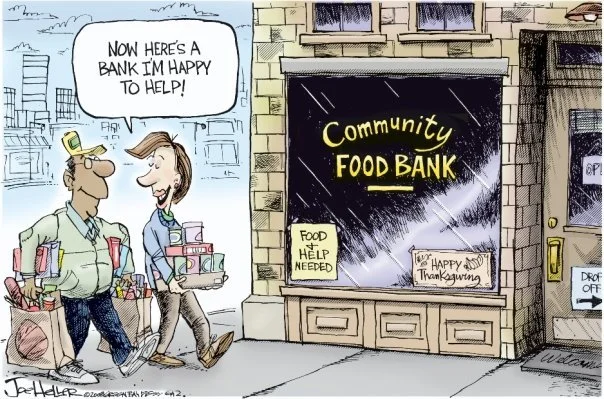The Intersection between Nutrition and Healthcare
“Did you know that every single person in the history of the world who has eaten food has died?” If I come across something like this on a reel, I know I’ve doom-scrolled too far. But let’s get serious for a moment— why is it that the centenarians making headlines for their remarkable longevity are often vegetarians? As it turns out, your diet and health are more interrelated than you might realize…
It’s well established that chronic diseases- heart disease, stroke, diabetes, and cancer– can be attributed to poor diet and habits; as I imagine many of us have been reminded of this as children. Consuming whole-grains, high-fiber foods, limiting sodium, increasing sources of omega-3 fatty acids, ensuring generous vegetable and folic acid intake, all have shown strong evidence in preventing chronic conditions. As for whether eating meat reduces one’s lifespan, well, there are fair arguments made on both sides. On one hand, a bivariate study across 175 countries found that consuming non-processed meat is positively correlated with increased life expectancy; on the other, the Adventist Health Study 2 has found that vegetarians tend to lead healthier lifestyles– resulting in lower overall mortality/risk of cancer. As vital as this research is in supporting healthy dietary foundations, its true benefit lies in being proactively and sensitively integrated into primary patient care.
Creator: kitzcorner | Credit: Getty Images
Routine nutritional screening could truly be valuable for the general and at-risk population. Indeed, several successful nutritional assessment implementations support this; A 2021 study demonstrated that nutritional counselling and exercise counselling effectively reduced weight and waist circumference in obese adults, with sustained results at 12 months. While there have been proven successes like this study, there also encompasses no small room for improvement in integrating nutritional consultation. Common barriers include time constraints, lack of training, and insufficient resources. Nurses are already overworked, and many of these nutritional assessments range from 20 min (a relatively long time for a busy clinical environment) to days to ensure accuracy (like the 24-hour dietary recall method). Furthermore, a 2020 survey revealed only 13.5% of physicians agreed that they were qualified to discuss nutrition. To enhance the integration of nutrition into healthcare, a British Medical Journal article emphasizes the need for robust research, better education for clinicians, and secure funding streams. It also proposes that healthcare facilities employ food-based interventions such as medically tailored meals and personalized prescriptions to improve patient outcomes and potentially reduce healthcare costs. Nevertheless, the need for reform does not diminish the significance of nutritional guidance. Perhaps with dietician involvement, this valuable sector could be adjusted to better serve patients in need.
Photo by Markus Winkler on Unsplash
Something that clinicians should also keep in mind, is that everyone’s relationship with food is deeply personal and influenced by cultural and socioeconomic factors. Past experiences, cultural restrictions, and food insecurity may collectively impact individuals ability to maintain specific diets. By adopting principles of narrative medicine, healthcare professionals could improve in dietary advice by understanding and respecting each patient’s story. Of course, discussing nutrition does not come without addressing food insecurity, which affects billions around the world. This must also be taken into consideration to ensure realistic recommendations are made for patients- a suggestion could be food banks coordinating with clinicians to help mediate food insecurity while providing competent nutritional care. However, food insecurity is a deeply complex issue that extends beyond the scope of this blog and requires more extensive research.
Incorporating narrative medicine with scientifically sound nutritional advice is a substantial step in ensuring health recommendations are both effective and embraced by those they aim to benefit. Although let’s remember to not get caught up in sticking to strict diets and the hardcore science behind it, but focus on overall well-being and finding a balance that feels right for each individual.
Some food for thought:
By Chloe Wang (she/her/hers) | Blog Committee Member
References
Adventist Health Study-2- Findings for Lifestyle, Diet & Disease. (n.d.). Loma Linda University Health. https://adventisthealthstudy.org/studies/AHS-2/findings-lifestyle-diet-disease
Bailey, R. L. (2021). Overview of dietary assessment methods for measuring intakes of foods, beverages, and dietary supplements in research studies. Current Opinion in Biotechnology, 70, 91–96. https://doi.org/10.1016/j.copbio.2021.02.007
Downer, S., Berkowitz, S. A., Harlan, T. S., Olstad, D. L., & Mozaffarian, D. (2020). Food is medicine: Actions to integrate food and nutrition into healthcare. BMJ, 369, m2482. https://doi.org/10.1136/bmj.m2482
Molenaar, E. A., van Ameijden, E. J. C., Vergouwe, Y., Grobbee, D. E., & Numans, M. E. (2010). Effect of nutritional counselling and nutritional plus exercise counselling in overweight adults: A randomized trial in multidisciplinary primary care practice. Family Practice, 27(2), 143–150. https://doi.org/10.1093/fampra/cmp104
Gbareen, M., Barnoy, S., & Theilla, M. (2021). Subjective and objective nutritional assessment: Nurses' role and the effect of cultural differences. BMC Nursing, 20(1), 157. https://doi.org/10.1186/s12912-021-00683-3
Harkin, N., Johnston, E., Mathews, T., Guo, Y., Schwartzbard, A., Berger, J., & Gianos, E. (2018). Physicians' dietary knowledge, attitudes, and counseling practices: The experience of a single health care center at changing the landscape for dietary education. American Journal of Lifestyle Medicine, 13(3), 292–300. https://doi.org/10.1177/1559827618809934
Willett, W. C., Koplan, J. P., Nugent, R., et al. (2006). Prevention of chronic disease by means of diet and lifestyle changes. In D. T. Jamison, J. G. Breman, A. R. Measham, et al. (Eds.), Disease Control Priorities in Developing Countries (2nd ed., Chap. 44). The International Bank for Reconstruction and Development / The World Bank; Co-published by Oxford University Press. https://www.ncbi.nlm.nih.gov/books/NBK11795/
You, W., Henneberg, R., Saniotis, A., Ge, Y., & Henneberg, M. (2022). Total meat intake is associated with life expectancy: A cross-sectional data analysis of 175 contemporary populations. International Journal of General Medicine, 15, 1833–1851. https://doi.org/10.2147/IJGM.S333004



